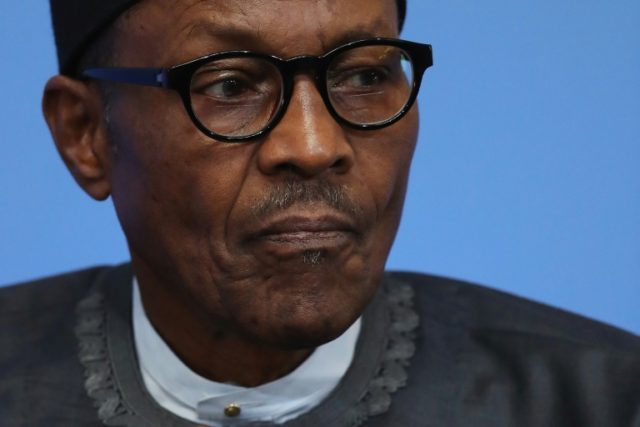A Nigerian man is serving jail time, unable to pay his bail, after being arrested for “disturbing the peace” by naming his dog “Buhari” after President Muhammadu Buhari.
Joachim Iroko, also identified as Joe Fortemose Chinakwe, was arrested Saturday after neighbors saw his dog with the name “Buhari” written on both sides of him. Nigerian authorities have charged Iroko with behaving “in a manner likely to cause breach of peace” and set his bail at 50,000 Naira, or slightly less than $150. Nigeria’s Punch publication confirms that Iroko is still in jail due to his family not stepping forward to pay his bail.
Iroko was arrested after a neighbor complained, claiming the dog was named after his father, Alhaji Buhari. But Iroko told the BBC that he did name his dog after the president. “I named my beloved pet dog Buhari, who is my hero. My admiration for Buhari started far back when he was a military head of state,” he said. Buhari served a short stint as Nigeria’s dictator between 1983-85. Now, Buhari is Nigeria’s democratically-elected leader, the first to take office in a peaceful transition of power in the nation’s history.
The incident recalls a similar animal-painting arrest thousands of miles away. In 2015, Cuban communist authorities arrested artist Danilo Maldonado, known as “El Sexto,” for painting the names “Fidel” and “Raúl” on two pigs and planning on setting them loose in a Havana town square. Unlike Iroko, Maldonado’s was an act of protest against the Castro regime and a reference to the George Orwell novel Animal Farm.
While the circumstances differ, the BBC notes that many Nigerians are expressing concern that Buhari, a Muslim from the nation’s north with a history of authoritarianism, may also crack down on dissent. Buhari recently reintroduced a project he calls the “War Against Indiscipline” intended to weed out lazy, deviant, or treacherous soldiers from the Nigerian military and instill a sense of order in civilians. The “war” was widely unpopular during Buhari’s first tenure, as it required, the Financial Times notes, “physical punishment — even imprisonment — for such misdemeanours as queueing improperly or being late for work.”
The new measures will be less severe and abide by constitutional directives, Buhari has promised.
They come at a time when many in Nigeria are doubting that Buhari will keep the promises that won him last year’s presidential election, particularly the promise to eradicate the terrorist group Boko Haram. Last year, Buhari gave the military a December deadline to eliminate the Islamic State affiliate entirely. When December rolled around, Buhari asserted that the group had been defeated, relegated to history. “Technically, we have won the war,” he declared
But Boko Haram is still around and still notably absent are the over 200 girls Boko Haram kidnapped from the northern town of Chibok in April 2014 — the act that made them internationally known. Just last week, Boko Haram attacked Chibok yet again, abducting another thirteen villagers. Shortly following the siege, Nigerian military officials claimed they had killed the group’s leader, Abubakar Shekau — the latest of over a dozen such declarations later disproven.

COMMENTS
Please let us know if you're having issues with commenting.